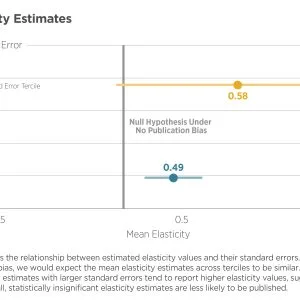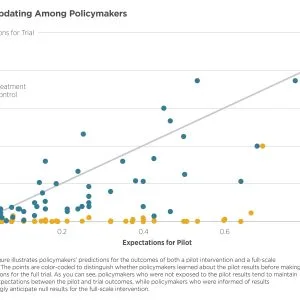
While early childhood programs are often seen as an essential policy tool to enhance human capital: the knowledge, skills, and abilities that individuals acquire through education, training, and experience, which enhance their productivity and economic potential and address social inequities, recently a consensus has emerged that paints a skeptical picture. Program evaluations often find that initial boosts in cognitive skills fade out by the first few years of formal schooling. As a result, researchers often attribute the value of early childhood interventions to their long-term impacts on “non-cognitive” skills, such as those related to personality and behavior. Given that both cognitive and non-cognitive skills are important for later-life outcomes, however, it remains important to understand why cognitive skill fade-out arises and how it can be mitigated. Motivated by this, this paper examines the fade-out of early childhood education programs.
The authors implement a field experiment to identify both the impact of preschool on students’ achievement, and the effect of having classmates who went to preschool. Their experiment builds on the Chicago Early Childhood Center (CHECC) program, an ongoing research study aimed at studying programs that will improve educational outcomes for young people. First, the authors randomly assign preschool access to low-income children through a large-scale field experiment conducted during 2010-2013 through a partnership with the Chicago Heights school district. Second, the authors partner with the local school district to randomly assign these students to classrooms throughout their elementary school years. They analyze data on students’ achievement during both preschool and elementary school, and find the following:
- Random assignment to CHECC preschool causes short-term improvements in students’ cognitive skills (Castillo et al., 2020).
- During elementary school, students randomly assigned to CHECC preschool did not perform significantly better on standardized tests than students assigned to the control group (Castillo et al., 2020). However, this average masks an important pattern: students who attended preschool benefit significantly from sharing elementary school classrooms with their preschool classmates. When preschoolers are assigned to elementary school classrooms with a higher proportion of their preschool peers, they tend to maintain cognitive skills that are notably stronger than those of students who were not randomized to attend CHECC preschool. In contrast, students with fewer preschool classmates in their elementary classrooms show outcomes comparable to those who were not assigned to CHECC preschool. Therefore, although the fade-out effect is observed, it can be mitigated by an optimal peer composition.
- The reduction of the fade-out is driven by elementary school classmates who were part of the same preschool cohort. This suggests that the attenuation of the fade-out effect is largely social, highlighting the importance of social networks, even from an early age.
RELATED UCHICAGO WORK
Perry Preschool at 50: What Lessons Should Be Drawn and Which Criticisms Ignored?
This paper reviews the research on the Perry Preschool Program, illustrating limitations and offering lessons related to the last five decades
of related research.
Investing in Early Childhood Development in Preschool and at Home
This chapter reviews research on early childhood education programs, investigating whether these programs make a difference for children’s development, and if so, how and under what conditions do they help, how cost-effective are they, and which programs are scalable.
The Social Side of Early Human Capital Formation: Using a Field Experiment to Estimate the Causal Impact of Neighborhoods
This research reveals the importance of public programs and neighborhoods on human capital formation at an early age, highlighting that human capital accumulation is fundamentally a social activity.
These results highlight a paradoxical insight: while the fade-out effect has been viewed as a devastating critique of early childhood programs, fade-out is a key rationale for providing early education to all children. This is because human capital accumulation is inherently a social activity, leading early education programs to deliver their largest benefits at scale, when everyone receives such programs. More broadly, this research highlights the importance of later-life environments in program efficacy. A wide array of programs, such as those targeting health, skill development, job search efforts, may also exhibit similar long-term dependence on participants’ environments.










